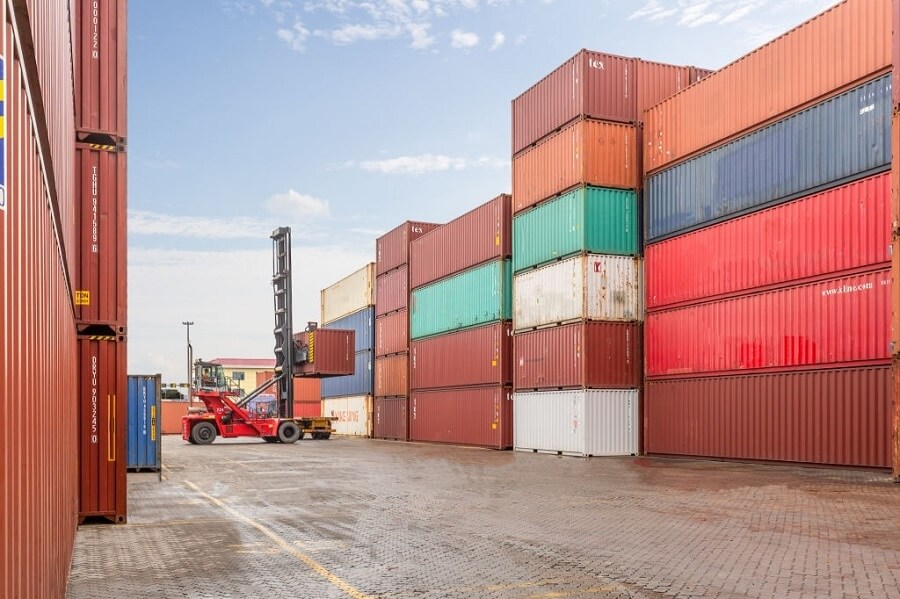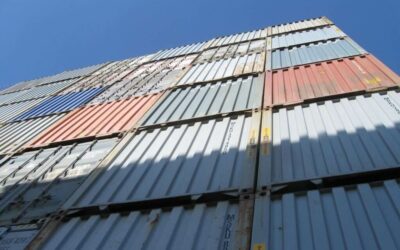What is the Difference Between Detention and Demurrage
Every step in the logistics operations is carried out according to proper agreements and contracts. Every condition must be abided by for a smooth process. The conditions and agreements are there only to ensure an efficient logistics operation. Freight forwarders, importers, exporters, and the people in the shipping business often come across the terms of detention and demurrage. These terms are common in the world of logistics.
The cost of transportation does not just comprise of the freight charges and its movement from and towards the terminal. There are several other payments to be made in the logistics operation. Demurrage and detention charges are included in the list of some of the widely used terms in container shipping and are the most common charges in shipping. While making a contract, a time period is agreed upon in which the Shipper or Consignee is supposed to load or discharge the cargo within the specified time. The demurrage and detention fee occur as a result of failure to follow this time period.
They are important and can often lead to financial losses or in severe cases total abandoning of the cargoes if the cost is not fully calculated prior to shipping.
Table of Contents
Why Do Delays Occur?
The risks of the demurrage and detention can be avoided by following a proper plan and schedule. However, most of the time, it is impossible to foresee the delays. Sometimes the delay is caused by some unexpected circumstances including
- Bad weather conditions
- Worker’s strike
- Port congestion
- Lengthy and difficult Custom procedures
It is necessary for the carriers to have full knowledge regarding the free time period limit in order to avoid any financial losses.
Free Time Period
The shipping companies offer the containers to their customers for convenient transportation of their goods and the cost is covered in the freight charges. The shippers usually show the detention and demurrage charges on their websites and give a detailed description of the free days. The limited free time period allows the quick return of the containers. If the traders exceed the time limit then they are charged the demurrage and detention fee.
The companies are required to offer an appropriate amount of free time to their customers. Laytime or free time is the permitted time, the time period agreed upon in the contract. This time allows the dealers to
- Load and deliver the container to export
- Pick-up, unloading and the return of the container to import
Introduction to Demurrage
The shipper is responsible for receiving the container from the port, load or offload products, preparing the documentation, and gate-in the container. All the operations must be done in time and in accordance with the agreed points. If at any step there is a delay or any condition is breached then the responsible party has to face a penalty.
Demurrage is a fee charged by the shipping line if the dealer or trader fails to take the cargo out of the port during the agreed amount of time. This fee is applicable on all types of the vessels including
- Vessels in the port
- In feeder terminal
- Or in the container yard
Why is it Charged?
If the importer has not picked up the full container from the terminal or offloaded it within the fixed free days, demurrage is charged which keeps increasing with the addition of another day.
Usually, a seven day free time period is allotted before charging demurrage. After that demurrage is charged according to a fixed rate and the number of days it has been delayed.
Example:
For example in case of imports, if a container is cleared on the first of a month and was given an eight-day free stay including the day of discharge then if the dealer comes on the tenth of that month then he would be charged with demurrage for two days with a rate fixed by the company.
Also Read: What Is The Difference Between A Liner And Tramp Service?
Introduction to Detention
Delays may also result from undue detention of transportation equipment known as detention charges. The container can also be taken from the port for loading or unloading. In both cases, if the container is not returned in time then detention is charged. Detention is the fee that the dealer pays for using a container outside the premises of the terminal after the free time.
The free time is determined according to the conditions that are agreed upon in the contract between the two parties. During which the importer takes the container out of the port or brings the container back within the decided time. The time usually starts when the containers are offloaded from the vessel.
Why is it Charged?
If the ship is delayed by the charterer or any third party agent the penalty is charged according to the number of days the equipment remained out of control of the shipping line.
Example:
In the case of the free time period often comprises five days in which the shipper is supposed to pick, pack, and return the full container to the terminal. In case of delays, the shipper is charged detention for not returning it empty or full. If the container is packed but not shipped due to some reason then demurrage is charged at a fixed rate
Why Must They Be Paid?
Demurrage and detention free time are different for different types of cargoes. For example, the charges for dry cargo would be different from the reefer cargo. The charges must be avoided as much as possible. But if you are charged then the payments must be ensured provided that the shipping lines must provide appropriate time for the loading and unloading. The fee serves the following purpose
- To pay for using the containers of the shipping lines
- To compensate the shipowner’s claim of damage on the charterers caused by delays
- To make the dealers return the container as soon as they can so the container can be used again
- Extra use of a vessel
- Specified terms are neglected
- Paid as penalty
How They Can Be Avoided
- Besides having proper knowledge about the free days and charges, the customers must also hire professional and efficient custom agents to avoid any documentation errors.
- If the delay is expected then the customers can request their shippers to allow extra days for the unloading or loading at the time of booking.
- But once the cargo has reached the port, the chances are lowered. In case the charges are high, the customers should not hesitate to negotiate with their agents to partially or completely waive off the charges
- It is necessary for the buyers to specify whether they want to request relaxation in demurrage or detention charge. For that, it is necessary to have a clear understanding of both terms. So that the shipping companies can manage the flow of goods accordingly.
Tips:
Some of the tips for efficient procedures are:
Preemptive Planning
Do as much work in advance as possible to avoid any delays. Though natural hurdles cannot be escaped, the preemptive planning can assist in dealing with unseen circumstances too
Have Multiple Options
With the increased connections, the dependencies have also increased. The modern-day logistics operators instead of relying on a sole option look for alternatives. Spare trucks, routes, and ports are often opted to avoid unnecessary delays.
Complete Knowledge About the Contract
The custom duties and the port conditions must be thoroughly known. This helps to make the shipping process smooth and avoid hurdles and delays.
Negotiating skills
In case the rates are high, good negotiating skills help to waive off the charges.





